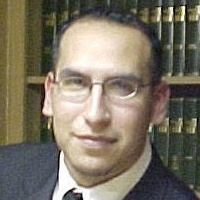San Antonio Juvenile Law Lawyer, Texas
Sponsored Law Firm
-
 x
x

Click For More Info:
-
Law Office of Robert R. Jones III
2411 Emancipation Ave, Suite 202, Houston, TX 77004» view mapCriminal Defense Expert Representation for Reasonable Rates
If you need representation, call me 24/7.
800-883-8760
Sam H. Lock
✓ VERIFIEDCriminal, Juvenile Law, White Collar Crime, Federal Trial Practice, DUI-DWI
San Antonio Criminal Defense Attorney | Bexar County DWI Lawyer
Mr. Lock began his career in civil litigation and then opened the doors of The Law Office of Sam H. Lock in 2000. For more than 10 years, he has been ... (more)
Law Offices of Jesus R Lopez
✓ VERIFIEDCriminal, Divorce & Family Law, Wills & Probate, Adoption, Juvenile Law
Originally from Del Rio, Texas, Jesus is fluent in both Spanish and English. With an undergraduate degree in Economics and International Business from... (more)
George E. Carroll
✓ VERIFIEDJuvenile Law, Estate Planning, International Tax, Bankruptcy, Construction
Mr. George Carroll has been a Managing Shareholder of the Law Offices of Carroll & HInojosa, PLLC, since the firm's formation in 1998. In addition to ... (more)
Joel Marquez Rodriguez
Juvenile Law, Bankruptcy, Administrative Law, Government, Domestic Violence & Neglect
Status: In Good Standing Licensed: 20 Years
Jesse A Sepulveda
Juvenile Law, Car Accident, Family Law, , Mass Torts
FREE CONSULTATION
CONTACTHector Ramon Garza
Juvenile Law, International Other, Family Law, Personal Injury
Status: In Good Standing Licensed: 20 Years
Taryn Oralia Biasiolli
Family Law, Juvenile Law, Business & Trade, Gay & Lesbian Rights
Status: In Good Standing Licensed: 10 Years
Jose C. Rodriguez
Juvenile Law, Bankruptcy, Administrative Law, Government, Domestic Violence & Neglect
Status: In Good Standing Licensed: 48 Years
BRANDON TODD HUDSON (brandon)
Criminal, Felony, White Collar Crime, Juvenile Law
Status: In Good Standing
 Robert Jones San Antonio, TX
Robert Jones San Antonio, TX AboutLaw Office of Robert R. Jones III
AboutLaw Office of Robert R. Jones III Practice AreasSpecializations
Practice AreasSpecializations



